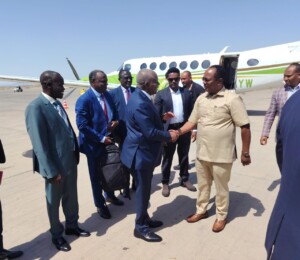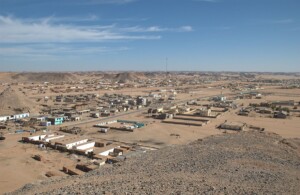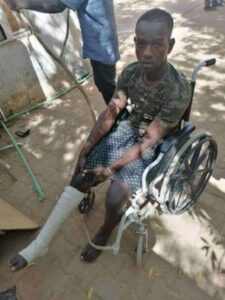Sudan’s gum Arabic associations highlight problems faced by workers
The Gum Arabic Forum was launched in El Obeid, capital of North Kordofan, yesterday in the presence of Sudan’s Prime Minister Abdallah Hamdok and a number of representatives. Participating organisations highlighted key issues faced by their workers. In South Kordofan, another conference took place on security and peace matters
 Gum Arabic (social media)
Gum Arabic (social media)
The Gum Arabic Forum was launched in El Obeid, capital of North Kordofan, yesterday in the presence of Sudan’s Prime Minister Abdallah Hamdok and a number of representatives. Participating organisations highlighted key issues faced by their workers. In South Kordofan, another conference took place on security and peace matters.
During the conference, representatives of 460 gum Arabic associations in the state spoke about problems they face regarding production areas and workers in the sector. The participating associations explained that the gum Arabic production regions suffer from a lack of health and education facilities and services. They also explained that local workers are paid low wages.
Representatives from the gum Arabic associations demanded essential training for workers, the provision of modern equipment, and the enacting of legislation that will ensure the protection of the gum Arabic forests.
Gum Arabic, a bonding agent and emulsifier crucial for soft drinks and paints, is grown mainly in Darfur, Kordofan, and Blue Nile states. Acacia Seyal (Taleh) and the Acacia Senegal (Hashab) are tapped for gum by stripping bits off the bark, from which gum then exudes.
The North Kordofan wali (governor), Khaled Mustafa, said that there is an acute shortage of drinking water in the state as well as a fuel, gas, and subsidized sorghum shortage.
He also explained that the mass export of gum Arabic is harmful to small farmers and demanded a change of approach to take into account the traditional production of gum Arabic and use new methods to increase production by conducting scientific research on the Hashab trees.
The governor further called for a review of the fiscal year, the development of new financing policies for the sector, and the establishment of a stock exchange for agricultural products in El Obeid.
He also stressed the need to find a solution regarding problems in energy and water supply and issues of youth unemployment in North Kordofan. The governor promised to resolve issues concerning fuel shortages, establish the Kordofan satellite channel, and restore the Kordofan newspaper.
PM Hamdok affirmed his support for the state government.
Gum Arabic exports from Sudan grew from US$33.1 million in 2009, when the government ended a state monopoly on the business, to US$114.7 million in 2017, according to Central Bank of Sudan (CBoS) statistics.
Earlier this year, Sudan received a €10 million grant from the EU to restructure its gum Arabic sector and in 2020, the Netherlands agreed to support and facilitate the establishment of gum processing factories.
Security and Peace conference
El Goz locality in the northern part of South Kordofan also witnessed the inauguration of the Security and Peace Conference yesterday. It is expected that Abdallah Hamdok will receive the findings and recommendations of the conference during his visit to the state today.
The conference discussed issues related to education, civil administration, unemployment, and security and peace problems faced by the local authorities. They also discussed development projects to employ young people.
Earlier this year, South Kordofan witnessed protests over the rampant insecurity in the region. At the start of January, Radio Dabanga reported on the recent surge in violence and crime in the western parts of South Kordofan.
Protest
Outside both conferences, people and activists organised protests. In El Obeid, the protesters called on PM Hamdok to dismiss the governor of North Kordofan. Local Resistance Committees accuse the governor of working with leaders of the former regime.
In Debibad in the El Goz locality, three people were arrested during a road-block protest by a group of youths. Witnesses told Radio Dabanga that the police intervened with tear gas canisters, which led to the injury of one protester who was then treated in the hospital of Dibebad.











 and then
and then